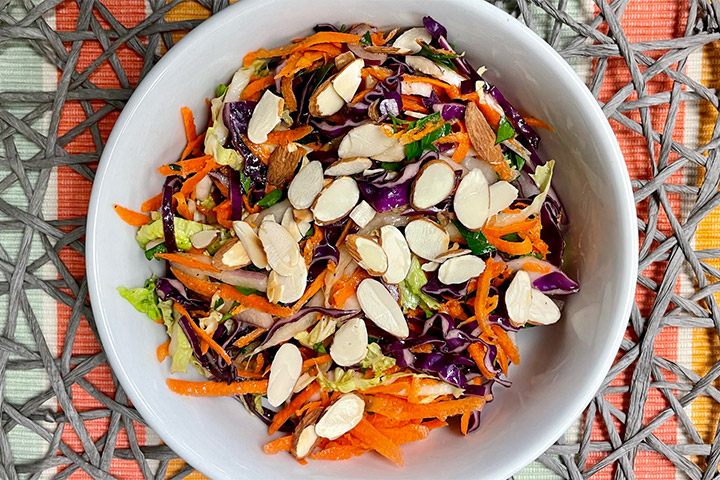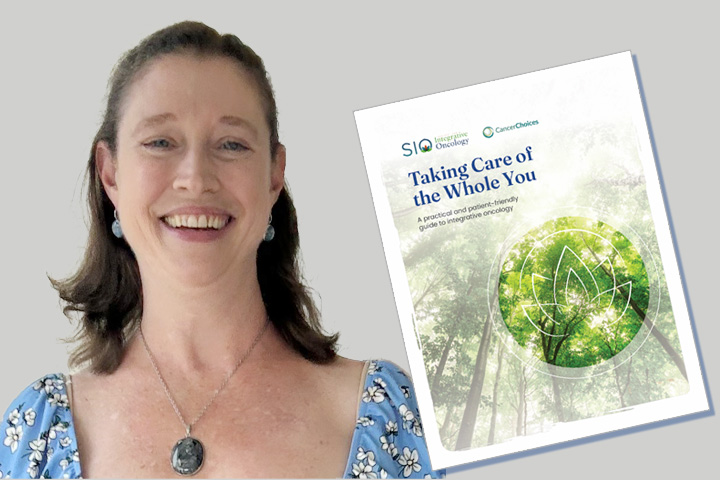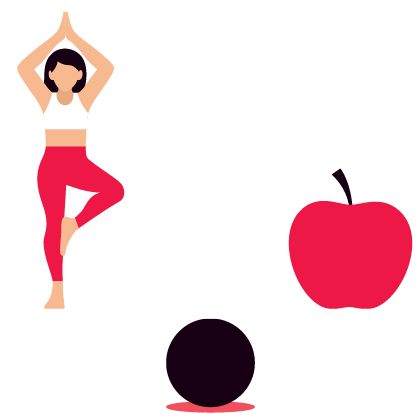Cooking for Your Health

Cook For Your Life; Fred Hutch Cancer Center
When you have pancreatic cancer, getting the calories you need, and eating nutritious food, can be a challenge.
Cancer treatments and their side effects are well-known for their ability to change your appetite. But the resulting fatigue and sensory changes, such as altered taste and smell, can also interfere with your ability to cook and prepare healthy foods.
“Good nutrition can help optimize treatment, and cooking is an essential tool patients can use to support their long-term health,” says Starla Garcia, a registered dietitian with the Integrative Medicine Program at The University of Texas MD Anderson Cancer Center (Houston). Indeed, research shows that teaching cancer patients and survivors practical cooking skills can help improve dietary patterns, support health, and reduce subsequent cancer risk.
Cooking Classes for Cancer Patients
Cooking classes and demonstrations have become very popular in recent years. Studies suggest that hands-on instruction may be more effective than nutrition education alone in promoting dietary changes.
Fortunately, institutions across the country are providing in-person and virtual training to patients who are undergoing treatment, as well as to survivors who want to eat more healthfully. Here are a few programs worth checking out.
Cook for Your Life at Fred Hutchinson Cancer Center: This free online resource provides evidence-based nutrition education in both English and Spanish, including more than 1,100 recipes, 400 informational blog posts, and an expansive library of educational videos, ranging from how to make a stock to how to make a vegetarian black bean burger.
In the span of a decade, what began as cancer survivor Ann Ogden Gaffney sharing recipes and cooking tips with her fellow patients evolved into a nutritional clearinghouse now hosted by the Fred Hutch Cancer Center in Seattle, Washington.
“Our recipes, articles, and videos are reviewed by our oncology-trained dietitians to ensure that each is backed with scientific evidence and follows the guidelines set by the Oncology Nutrition for Clinical Practice, 2nd Ed., published by the Oncology Nutrition Dietetic Practice Group, a professional interest group of the Academy of Nutrition and Dietetics, and the American Institute for Cancer Research and the American Cancer Society,” says Cook for Your Life Content Manager Sheryl Rothmuller. “People can run searches using a variety of health considerations, including meal preferences, caloric targets, even recipes that help combat specific side effects.” As such, Cook for Your Life is not only a great resource for patients at Fred Hutch, but it’s also a global resource with information on cancer prevention, recipes, and nutrition.
Culinary Medicine at MD Anderson: Whether you’re interested in learning more about the “Blue Zones,” regions of the world associated with greater longevity, or you want tips for how to introduce more disease-fighting mushrooms into your diet, cooking classes at MD Anderson provide practical training that helps patients expand their culinary horizons with an emphasis on a whole-food, plant-based approach.
“We’ve pulled in our culinary team and dietitians to curate a curriculum that’s going to be the most impactful for the populations we’re serving,” explains Garcia. MD Anderson also hosts a website called @TheTable that allows you to search not just by recipe type (think color, texture, and meatless main dishes), but also by symptoms (nausea and vomiting, diarrhea, constipation, and fatigue).
Garcia also recommends seeking out local cooking classes that focus on healthful eating, even if they’re not cancer-specific. “Learning how to cook in a community can help patients expand their knowledge about food and try new things,” Garcia says.
Nutrition in Your Kitchen: This hands-on cooking series sponsored by the Wellness, Resilience and Survivorship program at Cedars-Sinai (Los Angeles) provides cancer patients with in-person tutorials about healthful cooking. In addition to learning to make recipes featuring healthful ingredients like mushrooms, chia seeds, chickpea flour, tofu, hemp seeds, lentils, cacao, salmon, and bok choy, participants have an opportunity to commune together over a meal.
“The goal of the program is to help individuals get back to a sense of self and get back to health, particularly during the early survivorship period,” says Meghan Laszlo, an oncology dietitian at Cedars-Sinai. “During that time, people are highly motivated to make healthy choices, and they want to know not just what to eat but also how to implement the recommendations they’re getting during clinic visits.”
Nutrition in Your Kitchen is a three-part series, as well as single sessions on specific topics of interest. So if you complete the series, you can take a different class at a later date. During each session, Laszlo focuses on specific nutrition topic (nuts and seeds, mushrooms, medium chain triglyceride. or MCT, oil), as well as a hands-on cooking tutorial featuring two recipes—one simple, the other more complex. “When participants cook with us on site, they’re better equipped to replicate the recipes at home,” Laszlo notes.
Cooking and Community
Cooking and eating healthy food isn’t just about nutrition. It’s also about cultivating a sense of community. When people learn where their foods come from, and how to prepare healthy and delicious meals, they’re more likely to eat in a way that promotes healing.
An important part of these programs is the sense of community they create. “Participants start sharing their experiences, talking about their hair regrowing, recovering from surgery, and processing their experiences in a supportive environment,” Laszlo says. “In that sense, the cooking classes are more than just a vehicle for nutrition education. They’re a support group.”
A bonus: Many of these classes draw participants from a variety of cultural backgrounds and ethnicities, which creates an opportunity for additional learning. “It’s a collaborative class,” she adds. “We all learn new ways of cooking and preparing meals.”
Experts agree that cooking from scratch doesn’t have to be difficult. It can be as simple as throwing a bunch of ingredients into a bowl for a colorful salad. The trick is to branch out, try new things, and commit to making one or two new recipes each month, then each week. “Over time, you’ll learn which recipes work well for you and how to create weekly meal plans that accommodate your schedule,” Laszlo states.




